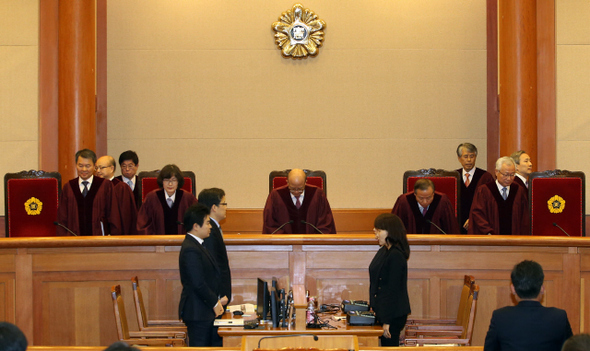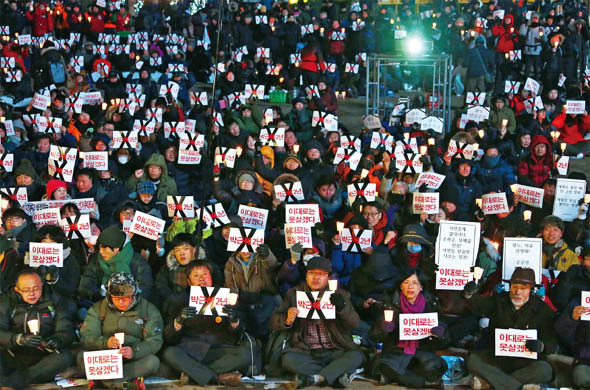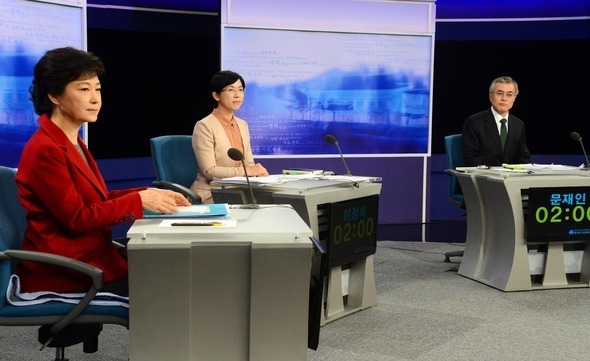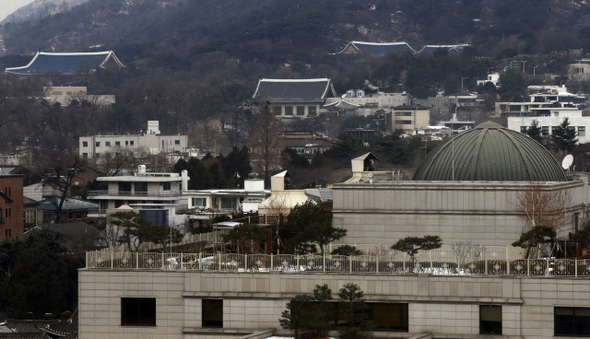 by Marco Torres
by Marco Torres
Every year, painkillers such as percocet, vicodin and other opioids kill thousands. Opioid prescriptions have jumped 300 percent in the last decade and they are the most commonly prescribed drugs on the market. They are the most dangerous and addictive drugs that often lose effectiveness with long-term use. So when a plant comes along that can effectively curb dependency on these popular selling medications, pharmaceutical companies get very get angry. Marijuana does just that.
The collusion between Big Pharma and Government is so strong that the system still believes (through corruption) that a plant should be classified as an illegal drug. There is an abundance of evidence that the suppression of medical marijuana is one of the greatest failures of a free society, journalistic and scientific integrity as well as our fundamental values. There is no plant on Earth more condemned than marijuana.
In a historic and significant moment in American history, in November of 2012, Colorado became the first US state to legalize marijuana for recreational use. The impact of the decision has rippled across the entire country with vast opportunities to educate millions on the top health benefits of marijuana and specifically for pain.
More than 100 million people in the United States suffer from debilitating chronic pain. Pain resulting from a severe on-the-job injury is a frustrating experience both for the patient as well as the treating health practitioners and physicians. If pursuing conventional medical care, it leads to chronic dependence on opiate painkillers and anti-depressants which eventually cause toxicity of the brain and metabolic function. However the relief of pain may be less desired if quality of life of such individuals is poor. The physician and the patients are left with no option but to resort to alternative modes of therapy.
Thousands of people who use opioids for pain control die from overdose each year–and the number is increasing. In fact, opioid-overdose deaths have quadrupled within 10 years, according to the Centers for Disease Control and Prevention, and three out of four of these deaths involveprescription pain medications, not street drugs. Most of the people who die–60%–aren’t using the drugs illegally either. They have legitimate prescriptions.
Against the recommendation of its own panel of expert advisers, last December the agency approved Zohydro ER, a long-acting version of hydrocodone. But attorneys general from 28 states have asked the FDA to reconsider its decision because the drug offers no clear advantages over others already on the market and its potency makes it a target for misuse and abuse.
Some studies have examined the effect of adding a cannabinoid to the regimen of patients with chronic pain who report significant pain despite taking stable doses of potent opioids.
An investigational cannabinoid therapy helped provide effective analgesia when used as an adjuvant medication for cancer patients with pain that responded poorly to opioids, according to results of a multicenter trial reported in The Journal of Pain, published by the American Pain Society.
When patients begin to consume cannabis, there is a notable decline in the amount of prescribed medications taken, such as antipsychotics, mood stabilizers, and pain relievers. These drugs have severe side effects. There is not one clinical study which examined the use of cannabis for pain relief where subjects were not able to reduce their drug intake.
A recent study has revealed some very interesting facts about medical marijuana and relief of chronic pain and patient safety. Meanwhile medical marijuana is becoming legal in more and more states. Here’s why you should be thinking about it if you or a loved one suffers from chronic pain…
A team of investigators from the University of Pennsylvania decided to take a look at the incidence of opioid-related deaths in states that have legalized medical marijuana. They reasoned that since pain control is a major reason why people use medical marijuana, states that have legalized or decriminalized the herb might have lower rates of opioid-related deaths. The study was published in JAMA Internal Medicine.
About 60 percent of overdoses occur in people prescribed the drugs by a single physician, not in those who “doctor shopped” or got them on the black market. And a third of those were taking a low dose. That just doesn’t happen with marijuana.
33 Percent Reduction In Deaths From Opioids
To test its theory, the team analyzed medical marijuana laws and 10 years’ of death certificates from the entire United States. The research team discovered that, in states that allowed medical marijuana, the overall average annual death rate from opioid overdose was almost 25% lower than it was in states where medical marijuana remained illegal. Not only that, but the relationship grew stronger over time. When average death rates were looked at on a year-to-year basis, the researchers discovered that deaths from opioids decreased by an average 20% in the first year of medical marijuana legalization…25% by the second year…and up to 33% by the fifth and sixth years after medical marijuana was legalized.
”It’s been known anecdotally,” says researcher Mark Ware, MD, assistant professor of anesthesia and family medicine at McGill University in Montreal. “About 10% to 15% of patients attending a chronic pain clinic use cannabis as part of their pain [control] strategy…we’ve shown again that cannabis is analgesic,” Ware says. “Clearly, it has medical value.”
The cannabis relieves pain, Ware says, by ”changing the way the nerves function.”
The Institute of Medicine published in its Mar. 17, 1999 report titledMarijuana and Medicine: Assessing the Science Base. “In conclusion, the available evidence from animal and human studies indicates that cannabinoids can have a substantial analgesic effect.”
When it comes to pain management, some studies even suggest thatpatients who use vaporizers to consume medical marijuana could experience excellent results. A team of Israeli scientists recently conducted a clinical trial in which they discovered that patients who vaporized whole-plant cannabis felt a substantial amount of relief from nerve pain. These findings, which were published in the latest edition of theJournal of Pain and Palliative Care Pharmacotherapy, indicate that the majority of the study participants reported this reduction as the result of inhalers.
Misconceptions of Opioids
Misconception #1: Opioids work well for chronic pain.An estimated 90 percent of people suffering long-term pain wind up being prescribed an opioid despite little evidence that the drugs help much or are safe when used long-term. “But we do know that the higher the dose and the longer you take it, the greater your risk,” says Gary Franklin, M.D., research professor of environmental and occupational health sciences at the University of Washington in Seattle. People who take opioids for more than a few weeks often develop tolerance, so they require higher doses, which in turn breeds dependence. And although higher doses can ease pain, they commonly cause nausea and constipation, disrupt your immune system and sex life, and leave you feeling too fuzzy-headed to participate in things such as physical activity that can speed your recovery. And in a cruel twist, the drugs can make some people more sensitive to pain.
Misconception #2: Opioids are not addictive when used to treat pain.Somewhere between 5 percent and 25 percent of people who use prescription pain pills long term get addicted. Fewer women are dependent on prescription painkillers than men, but they may become dependent more quickly and are more likely to doctor shop.
Misconception #3: Extended-release versions are safer.Opioids such as hydromorphone (Exalgo), oxycodone (OxyContin and generic), morphine (Avinza, MS Contin, and generic), and the newly approved Zohydro ER stay in the body longer and are usually stronger than short-acting forms. But doctors sometimes prescribe them for convenience–patients need to take fewer pills–and because they believe that long-acting drugs are less likely to cause a drug “high” and lead to addiction. But there’s no evidence those drugs work better or are safer than short-acting ones. And people dependent on opioids seek out the higher potency of long-acting versions. That’s why public health groups and law-enforcement agencies fear that the new Zohydro ER is prone to abuse.
Why Cannabis is Safer
Gregory T. Carter, MD, Clinical Professor at the School of Medicine at the University of Washington, stated the following in his response titled “The Argument for Medical Marijuana for the Treatment of Chronic Pain,” published in an article titled “Medical Marijuana: A Viable Tool in the Armamentaria of Physicians Treating Chronic Pain? A Case Study and Commentary,” in the May 2013 issue of Pain Medicine:
“[R]esearch further documents the safety and efficacy of medicinal cannabis for chronic pain. Cannabis has no known lethal dose, minimal drug interactions, is easily dosed via orally ingestion, vaporization, or topical absorption, thereby avoiding the potential risks associated with smoking completely…
Natural cannabis contains 5-15% THC but also includes multiple other therapeutic cannabinoids, all working in concert to produce analgesia…”
The Mayo Clinic stated in its Aug. 25, 2006 online article “Marijuana as Medicine: Consider the Pros and Cons”:
“People widely used marijuana for pain relief in the 1800s, and several studies have found that cannabinoids have analgesic effects. In fact, THC may work as well in treating cancer pain as codeine, a mild pain reliever. Cannabinoids also appear to enhance the effects of opiate pain medications to provide pain relief at lower dosages.
Researchers currently are developing new medications based on cannabis to treat pain.”
David Hadorn, MD, PhD, Medical Consultant for GW Pharmaceuticals, Ltd., wrote in his July 17, 2003 document titled “Use of Cannabis Medicines in Clinical Practice,” published on his personal websitewww.davidhadorn.com (website no longer available; Feb. 17, 2009):
“Scientists have known for many years that cannabinoids (the major active ingredients in cannabis medicines) are potent pain relievers, and that they act synergistically with opiates to increase the degree of pain relief. The addition of cannabis medicines to therapeutic regimens can reduce the need for opiates by 50 percent or more in many patients (while also reducing side effects such as constipation that opiates commonly produce).”
Denis Petro, MD, Board of Directors for Patients Out of Time, wrote in his paper titled “Spasticity and Chronic Pain” published in the 1997 book Cannabis in Medical Practice – A Legal, Historical and Pharmacological Overview of the Therapeutic Use of Marijuana:
“The evidence in support of cannabis as a treatment for pain exists both in preclinical animal studies and in a small number of clinical trials. Since cannabis contains many active cannabinoids in varying amounts in differing plants, a coherent recommendation concerning use against pain symptoms is lacking… Considering the alternative of addicting drugs such as the opiate analgesics, patients may opt for the relative safety of cannabis.”
Based on these findings, many pain experts are now advising that physicians recommend cannabis therapy in in lieu of opiate medications to “reduce the morbidity and mortality rates associated with prescription pain medications.”











